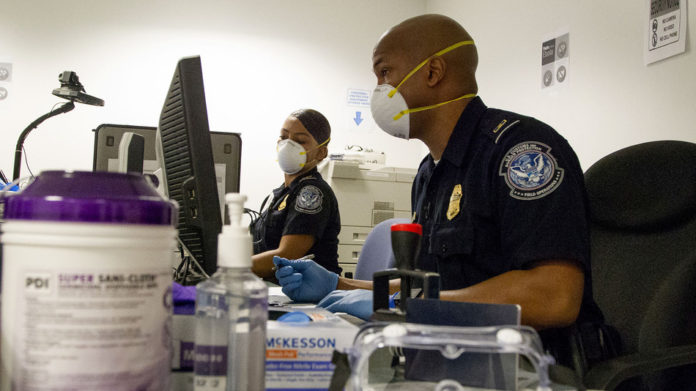U.S. Places Restrictions on Travelers From Ebola-Affected Countries

Call it a partial travel ban.
Department of Homeland Security Secretary Jeh Johnson announced restrictions on travelers arriving from three Ebola-affected countries on Tuesday, as part of the United States’ efforts to contain the virus.
Beginning on Wednesday, travelers from Liberia, Sierra Leone and Guinea will be required to fly into one of five U.S. airports with enhanced screening protocols already in place: New York City’s JFK International Airport, Newark, Dulles, Atlanta and Chicago.

Image: Mashable Composite/US DOT/Wikimedia
The five airports account for 94% of travelers who fly into the U.S. from the affected countries, Sec. Johnson said in a statement, and therefore should result in “minimal travel disruption.”
The 6% of travelers affected by the new restrictions are responsible for contacting airlines for rebooking their flights.
There are currently no direct, non-stop commercial flights from the three countries to anywhere in the U.S.

Department of Homeland Security Secretary Jeh Johnson, testifies before the House Homeland Security Full Committee, during a hearing on Capitol Hill in Washington, Wednesday, Sept. 17, 2014.
“We are continually evaluating whether additional restrictions or added screening and precautionary measures are necessary to protect the American people and will act accordingly,” Johnson said.
“I live in between Monrovia and Jersey City, N.J., so it’s fine for me,” said Katie Meyler of the educational charity More Than Me, when told of the new restrictions. “Getting to Liberia you have to fly like this anyhow. I think this is a fair compromise.”
At least eight people have been treated for Ebola in the United States since the outbreak in West Africa began earlier this year. More than 100 people are currently being monitored or in quarantine. All of them stem from contact with the virus in Liberia or Sierra Leone, or with the index patient, Thomas Eric Duncan, who arrived in the U.S. in September. He later died.
Nearly 10,000 confirmed, probable and suspected cases of Ebola have been reported in seven affected countries — Guinea, Liberia, Nigeria, Senegal, Sierra Leone, Spain and the U.S. — through mid-October, the WHO estimates. Nearly 5,000 are believed to have died in the outbreak — though experts fear that number may be much higher.
Have something to add to this story? Share it in the comments.
